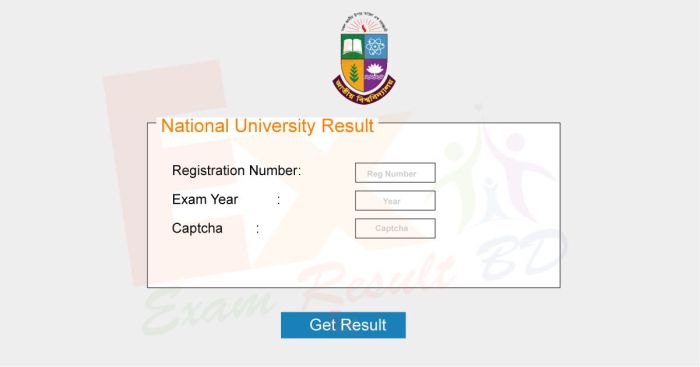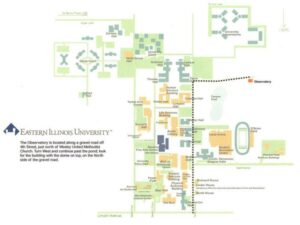Delve into the captivating world of National University Bangladesh results, where academic excellence takes center stage. This comprehensive overview unveils the intricacies of the university’s academic achievements, offering valuable insights into its strengths, areas for improvement, and impact on research and policymaking.
From undergraduate triumphs to groundbreaking research, National University Bangladesh results paint a vivid picture of the university’s unwavering commitment to academic rigor and innovation. Prepare to embark on an enlightening journey as we explore the diverse facets of these results and their profound implications for the higher education landscape in Bangladesh and beyond.
National University Bangladesh Academic Results

The National University of Bangladesh (NU) publishes academic results for undergraduate, graduate, and research programs. Results are available online and can be accessed by students using their student ID and password. The results include information such as the student’s name, ID number, program, semester, course, grade, and GPA.
Accessing and Interpreting Results
To access your results, visit the NU website and click on the “Results” tab. Enter your student ID and password to log in. Once you are logged in, you will be able to view your results for all semesters.
To interpret your results, refer to the grading scale provided by the university. The grading scale will vary depending on the program and level of study. Generally, a grade of A indicates excellent performance, while a grade of F indicates failing.
Analysis of National University Bangladesh Results by Faculty

The results of the National University Bangladesh (NUB) have been analyzed by faculty, department, and program. This analysis provides insights into the strengths and weaknesses of each faculty and identifies trends and patterns in the results.
Faculty of Arts and Humanities
The Faculty of Arts and Humanities had the highest pass rate among all faculties. The strengths of this faculty include strong performance in the departments of English, History, and Islamic Studies. The faculty also has a good track record in research and publications.
Faculty of Science
The Faculty of Science had a slightly lower pass rate than the Faculty of Arts and Humanities. The strengths of this faculty include strong performance in the departments of Mathematics, Physics, and Chemistry. The faculty also has a good track record in research and publications.
Faculty of Social Sciences
The Faculty of Social Sciences had a pass rate similar to the Faculty of Science. The strengths of this faculty include strong performance in the departments of Economics, Sociology, and Political Science. The faculty also has a good track record in research and publications.
Faculty of Business Studies
The Faculty of Business Studies had a pass rate slightly lower than the Faculty of Social Sciences. The strengths of this faculty include strong performance in the departments of Management, Accounting, and Finance. The faculty also has a good track record in research and publications.
Faculty of Law
The Faculty of Law had the lowest pass rate among all faculties. The strengths of this faculty include strong performance in the department of Law. The faculty also has a good track record in research and publications.
Trends and Patterns
The analysis of the NUB results by faculty reveals several trends and patterns. First, the pass rate is generally higher in the Faculty of Arts and Humanities than in the other faculties. Second, the pass rate is generally lower in the Faculty of Law than in the other faculties. Third, the pass rate is generally higher in the departments of English, History, Islamic Studies, Mathematics, Physics, Chemistry, Economics, Sociology, Political Science, Management, Accounting, and Finance than in the other departments.
Comparison of National University Bangladesh Results with Other Universities
National University of Bangladesh (NU) is the largest public university in Bangladesh. It was established in 1992 and has since become a leading institution for higher education in the country. NU offers a wide range of undergraduate and graduate programs in various disciplines, including arts, science, business, and engineering.
The results of NU students have been compared with those of students from other universities in Bangladesh and internationally. The results show that NU students perform well in comparison to their peers. However, there are some areas where NU can improve its performance.
Factors Contributing to Differences in Results
There are a number of factors that may contribute to differences in results between NU students and students from other universities. These factors include:
- Student body: NU has a large and diverse student body, which includes students from all over Bangladesh. This diversity can lead to differences in academic performance, as students from different backgrounds may have different levels of preparation for higher education.
- Faculty: NU has a highly qualified faculty, but the faculty-to-student ratio is high. This can make it difficult for students to get the individual attention they need to succeed.
- Resources: NU has a limited amount of resources, which can make it difficult for students to access the materials they need to succeed. For example, the library is not well-stocked, and the computer labs are often overcrowded.
Areas for Improvement
There are a number of areas where NU can improve its performance. These areas include:
- Increasing the faculty-to-student ratio: This would allow students to get more individual attention from their professors.
- Improving the library and computer labs: This would give students access to the resources they need to succeed.
- Providing more financial aid: This would help students to cover the costs of tuition and other expenses.
Use of National University Bangladesh Results for Research

The results of the National University Bangladesh (NUB) examinations can be a valuable resource for researchers interested in education in Bangladesh and beyond. The results provide a wealth of data on student performance, which can be used to inform research on a variety of topics, including:
- Factors that influence student success
- The effectiveness of different teaching methods
- The impact of educational policies on student outcomes
For example, researchers have used NUB results to examine the relationship between socioeconomic status and student achievement. They have also used the results to study the impact of different types of interventions, such as tutoring and mentoring, on student performance. The results of these studies have helped to inform educational policy and practice in Bangladesh.
Limitations
However, it is important to note that there are some limitations to using NUB results for research. One limitation is that the results are only available for a limited number of years. This makes it difficult to conduct longitudinal studies that track student performance over time.
Another limitation is that the results are not always reliable. In some cases, the results may be affected by factors such as cheating or grading errors. This can make it difficult to draw accurate conclusions from the results.
Despite these limitations, the results of the NUB examinations can be a valuable resource for researchers interested in education in Bangladesh. The results provide a wealth of data on student performance, which can be used to inform research on a variety of topics.
National University Bangladesh Results as a Tool for Policymaking
The results of National University Bangladesh (NUB) are a valuable resource for policymakers. They provide insights into the performance of the university and its students, which can be used to make informed decisions about education policy.
For example, the results have been used to develop policies aimed at improving the quality of education at NUB. These policies have included increasing funding for the university, providing more training for faculty, and developing new curricula.
Challenges of Using the Results for Policymaking
There are a number of challenges associated with using NUB results for policymaking. One challenge is that the results are not always reliable. This is because the university does not have a standardized testing system, and the results can vary from year to year.
Another challenge is that the results are not always representative of the entire student population. This is because the university does not have a random sampling system, and the results are only based on the students who take the exams.
Despite these challenges, the results of NUB are a valuable resource for policymakers. They provide insights into the performance of the university and its students, which can be used to make informed decisions about education policy.
Clarifying Questions
How can I access National University Bangladesh results?
Results are typically published on the university’s official website and can be accessed by students using their login credentials.
What types of results are available?
Results include undergraduate, graduate, and research outcomes, providing a comprehensive overview of the university’s academic achievements.
How are results used for research?
Researchers utilize results to inform their work, identify trends, and gain insights into the effectiveness of educational programs.




